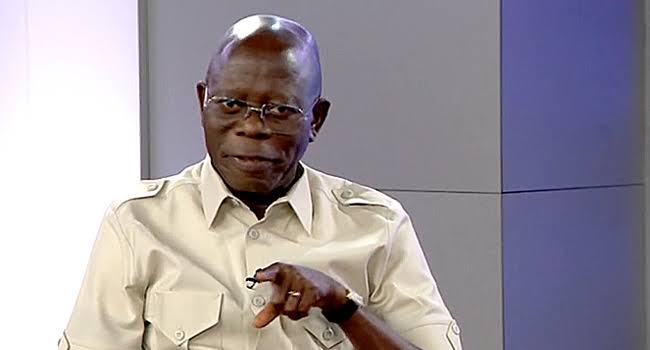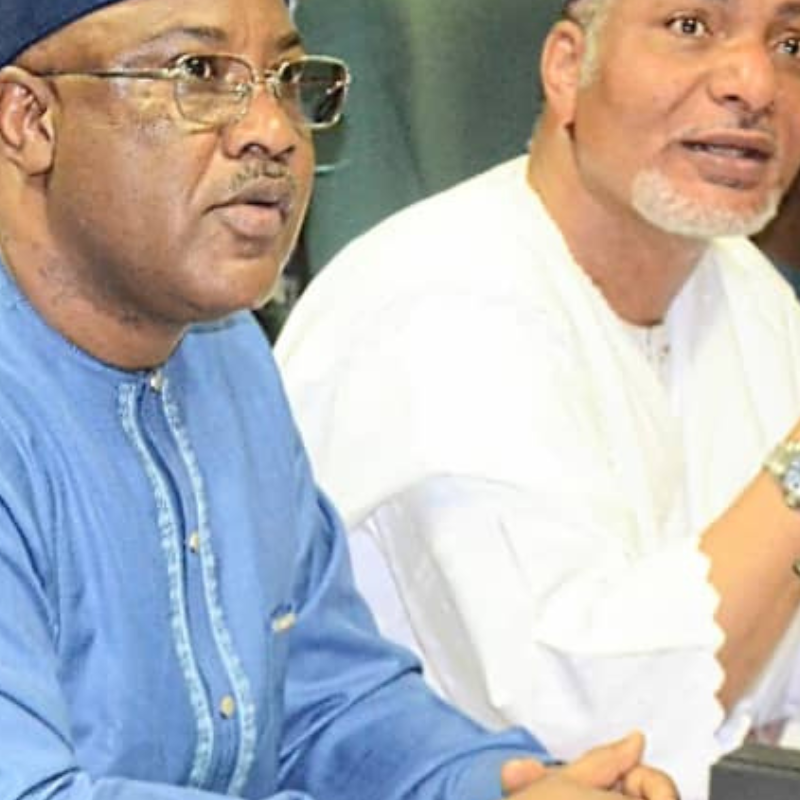
The passage of the sexual harassment of students bill, 2025, is a landmark effort to make schools safe for learning in Nigeria
![]()
The Senate took a decisive step toward safer learning environments by passing the bill, which the House of Representatives had earlier cleared. It was presented for concurrence by Senate Leader, Sen. Michael Opeyemi Bamidele (APC, Ekiti) last week.
The bill seeks to rebuild trust between educators and students, a trust long eroded by unchecked abuse of power and recurring “sex-for-grades” scandals.

Read Also: Reprieve for Convicted Pregnant Women as Sex for Grades Bill Resurfaces | GESI Tracker
What the Bill Changes
At its core, the proposed law criminalizes a broad range of sexual misconduct within academic settings. It protects students from acts such as:
- Demanding or coercing sexual acts from students or prospective students
- Making unwelcome sexual advances or creating a hostile environment
- Touching, hugging, kissing, or pinching in a sexual manner
- Sending sexually explicit messages or images
- Stalking or making sexually suggestive jokes and comments
Even indirect involvement, like aiding or inducing another person to commit sexual harassment, now carries criminal weight.
The penalties are notably stringent. Educators found guilty of sexual harassment face a minimum of 5 years and up to 14 years in prison, without the option of a fine. Related offences attract two to five years’ imprisonment, also without a fine.
Institutional complicity is also addressed: any school or head of institution that fails to act on reported cases may face fines up to ₦5 million. Importantly, consent is not a defense if the sexual act involves an educator and a student, unless they are legally married.
Empowering Victims, Shifting Power
A major inclusion is the right for victims to pursue civil redress alongside criminal prosecution. Students who experience sexual harassment can now sue for damages, a move that could change how survivors navigate justice.
Every tertiary institution will also be required to set up an Independent Sexual Harassment Prohibition Committee. These committees will handle investigations and decisions internally, but must step aside once a case enters the courts to prevent overlapping jurisdiction.
Students, guardians, or their legal representatives can file written petitions directly with the Nigerian Police Force, the Attorney-General, or the institution’s committee, a practical pathway that could lower barriers to reporting.

A Broader GESI Perspective
From a GESI lens, this bill is significant. It signals an institutional acknowledgment that sexual exploitation in education is not just a moral failure, but a structural inequity that limits students’, especially girls’, right to learn safely and advance academically.
The creation of clear penalties, independent complaint mechanisms, and survivor-led redress options marks a shift from informal handling of abuse to formal accountability.
Still, implementation will be the real test. Universities have long been criticized for shielding perpetrators or discouraging victims. Ensuring that the new law translates into real protection, through training, awareness, and survivor-centered processes, will require persistent oversight from civil society organisation, students’ unions, and gender advocacy groups.
Read Also: Sexual Harassment Bill Bounces Back | GESI Tracker
A Note on Inclusion and Accountability
While the bill marks a huge leap forward for student protection, it is also worth pausing on what is not often said out loud. Sexual harassment in schools does not affect only girls, and not every abuser is male. Boys and men can be victims too, though they are less likely to speak up, often because of ridicule, shame, or the assumption that “it doesn’t happen to men.”
The proposed law, to its credit, uses gender-neutral language, “student, educator”, which means it covers anyone in either role. But implementation will need to consciously reflect that inclusivity. Reporting channels, awareness campaigns, and support systems should be designed for all survivors, not just the ones we are used to seeing in headlines.
And then there is the inverse, when students initiate or attempt to manipulate educators sexually. It happens, though rarely discussed. The bill does not frame this as a mutual exchange, because the responsibility still rests on the person in authority to uphold professional boundaries. But addressing these nuances openly, within ethical and disciplinary frameworks, will make institutions stronger and fairer overall.
Why It Matters
In practical terms, the bill is about restoring dignity to classrooms and campuses. It is about ensuring that no student has to weigh their grades against their safety.
For GESI advocates, it represents progress, not perfection, but a meaningful move toward equity, trust, and justice within Nigeria’s education system.
In conclusion, the passage of the Sexual Harassment of Students (Prevention and Prohibition) Bill, 2025, sends a clear message: that abuse of power in learning spaces will no longer be ignored or excused. It sets a new national standard, one that recognizes the right of every student, regardless of gender or background, to learn in safety and dignity.
But this is not the first time the idea has reached this stage. Versions of the same bill were passed in both the 8th and 9th National Assemblies but failed to receive presidential assent. Many are now watching closely to see if the 10th Assembly’s effort will finally break that cycle of hesitation and turn legislative intent into real, enforceable change.
The real measure of this imminent law won’t be in its text but in its translation, whether classrooms across Nigeria finally become places of respect, accountability, and equal opportunity for all.




